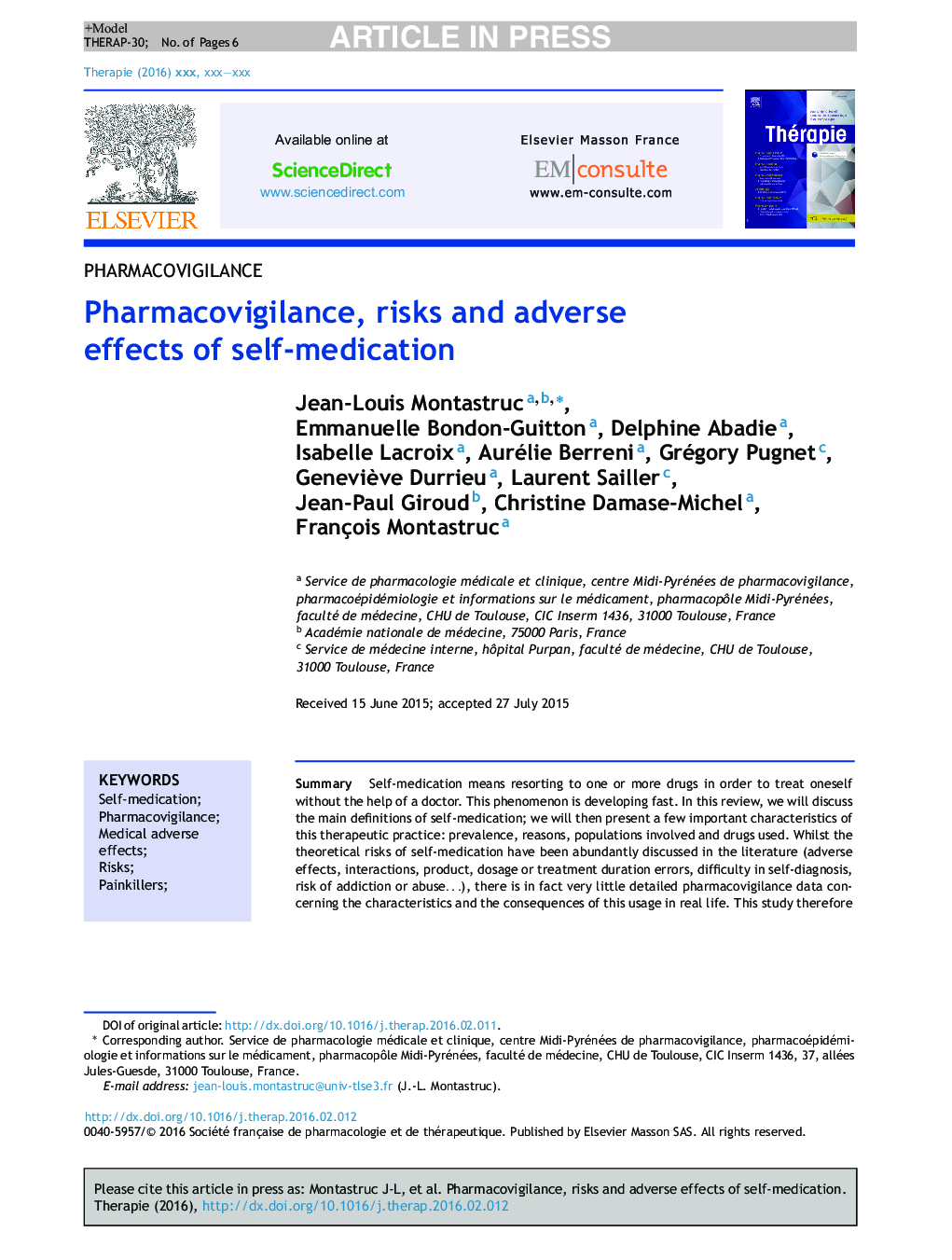| Article ID | Journal | Published Year | Pages | File Type |
|---|---|---|---|---|
| 2578631 | Thérapie | 2016 | 6 Pages |
Abstract
Self-medication means resorting to one or more drugs in order to treat oneself without the help of a doctor. This phenomenon is developing fast. In this review, we will discuss the main definitions of self-medication; we will then present a few important characteristics of this therapeutic practice: prevalence, reasons, populations involved and drugs used. Whilst the theoretical risks of self-medication have been abundantly discussed in the literature (adverse effects, interactions, product, dosage or treatment duration errors, difficulty in self-diagnosis, risk of addiction or abuseâ¦), there is in fact very little detailed pharmacovigilance data concerning the characteristics and the consequences of this usage in real life. This study therefore describes the all too rare data that is available: patients, clinical characteristics, “seriousness” and drugs involved in the adverse effects of self-medication. It also discusses leads to be followed in order to minimize medication risks, which are obviously not well known and clearly not sufficiently notified.
Related Topics
Health Sciences
Pharmacology, Toxicology and Pharmaceutical Science
Pharmacology, Toxicology and Pharmaceutics (General)
Authors
Jean-Louis Montastruc, Emmanuelle Bondon-Guitton, Delphine Abadie, Isabelle Lacroix, Aurélia Berreni, Grégory Pugnet, Geneviève Durrieu, Laurent Sailler, Jean-Paul Giroud, Christine Damase-Michel, François Montastruc,
